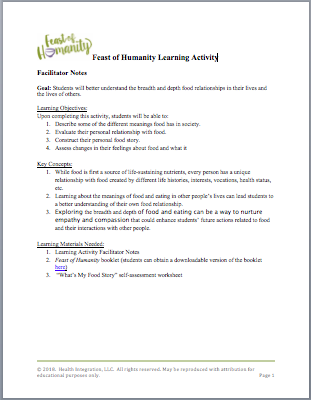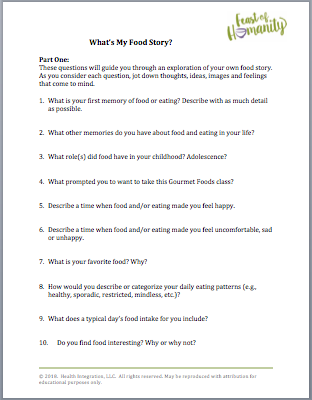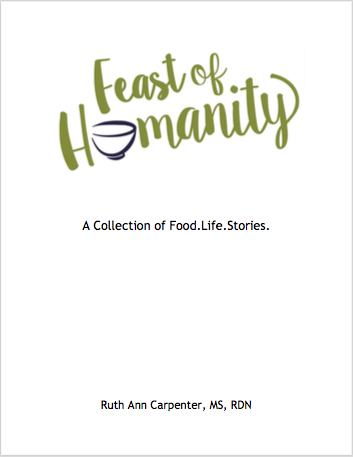“Probably the best class discussion I have ever had with students! ”
Curriculum
Stories have the power to transform us. This is especially true if we reflect on how they make us think and feel differently. And learn about others’ perspectives through dialog.
With the Feast of Humanity curriculum, instructors have a turn-key lesson plan that guides learners through a process of exploration, reflection, and discussion about the intersection of food, life, and humanity. It’s been pilot-tested with college-age dietetics majors and is appropriate for younger students, as well as community-based groups. The curriculum materials include:
- Step-by-step learning activity for instructors (for face-to-face, online, or blended delivery)
- Worksheets for the students
- Feast of Humanity Mini-Book
1. Step-by-step learning activity for instructors
Feast of Humanity Learning Activity with facilitator notes. Can be used with face-to-face, online, or blended delivery.
“After reading these collective stories, I now have an interest to learn how others feel about food and nutrition.”
2. Student Worksheets
These questions will guide students through an exploration of their own food story. As they consider each question, have them jot down thoughts, ideas, images and feelings that come to mind.
“I realized food stories matter. Learning about someone else’s journey with food brings a level of understanding and connection with that person in a way that I didn’t expect. ”
3. Feast of Humanity mini-book
A collection of six personal stories that gives readers a taste of the breadth and depth of the meaning of food in people’s lives.
Read and reflect or share and discuss!
“In hopes of pursuing a career in dietetics, it’s hard to look at food as something more than calories, sugar, protein, and carbohydrates. But in reading these short stories, it has opened my eyes to the many different roles food can play.”
Pilot-Testing in the Classroom
Feast of Humanity has been used at a large private university as a catalyst to help nutrition and dietetic students think about food in new ways. Having easily integrated the Feast of Humanity lesson plan into her existing semester-long food and culture course, the professor shared her delight stating, “We had a very good discussion about Feast of Humanity. Probably the best class discussion I have ever had with students!”








